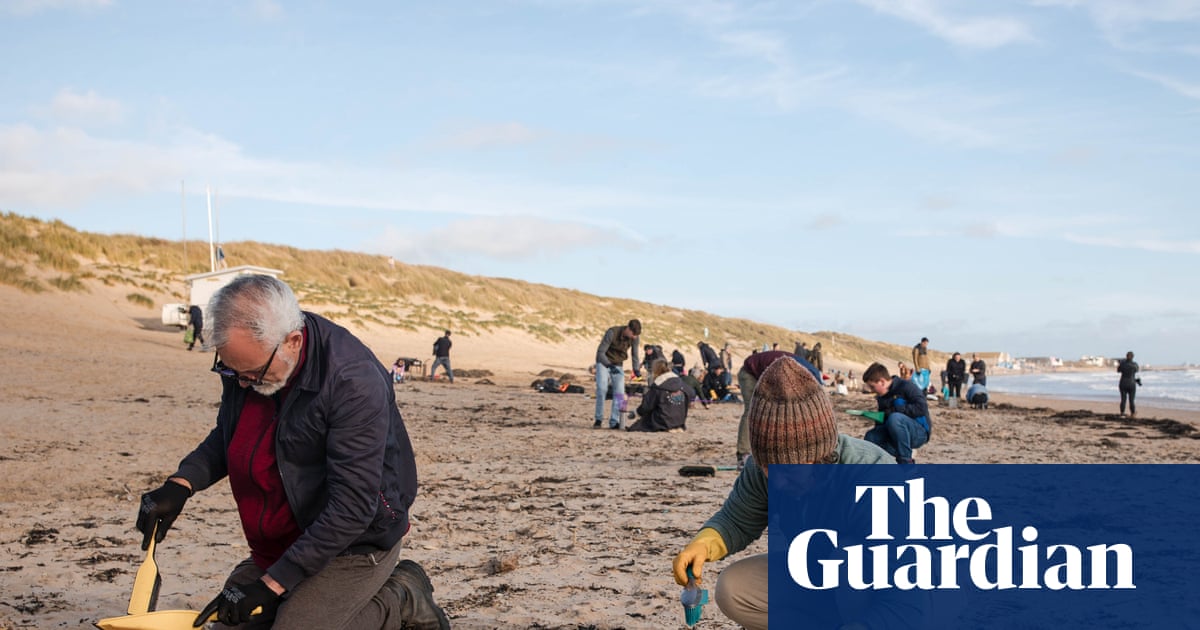
"Last week, an environmental disaster took place on Camber Sands beach, on what could turn out to be an unprecedented scale. Eastbourne Wastewater Treatment Works, owned by Southern Water, experienced a mechanical failure and spewed out millions of biobeads on to the Sussex coastline. Southern Water has since taken responsibility for the spill. Ironically, biobeads are used to clean wastewater bacteria attach to their rough, crinkly surface and clean the water of contaminants."
"We're scooping up the sand, then pouring the sand over a bucket into a sieve, and then pouring the water on top, so that we just get the beads, says Hastings resident Roisin O'Gorman. Andy Dinsdale, the founder of Strandliners, an environmental organisation that runs beach cleanups, says: They've got to get down on their hands and knees, almost into the strandline [the line of seaweed and other debris that lines the high water mark on beaches], to look for very small 5mm black pellets."
Millions of peppercorn-sized black plastic biobeads leaked from Eastbourne Wastewater Treatment Works after a mechanical failure at the Southern Water-owned plant; Southern Water has accepted responsibility. The beads are used to treat wastewater, providing surface area for bacteria to remove contaminants. The spill carpeted Camber Sands, a popular beach with rare dune habitat, and volunteers gathered to comb the sand by hand and with sieves. Cleanup work is painstaking and slow, requiring close inspection of the strandline for tiny 5mm pellets. The incident has created environmental hazards and emotional strain for coordinators and volunteers.
Read at www.theguardian.com
Unable to calculate read time
Collection
[
|
...
]